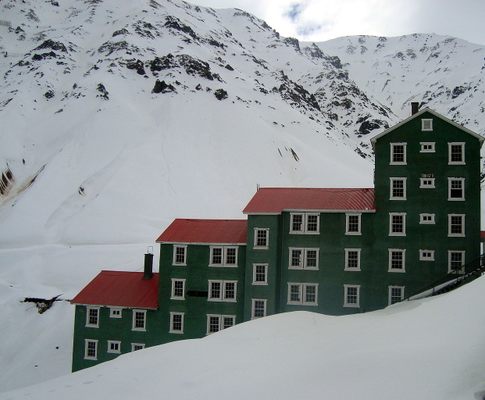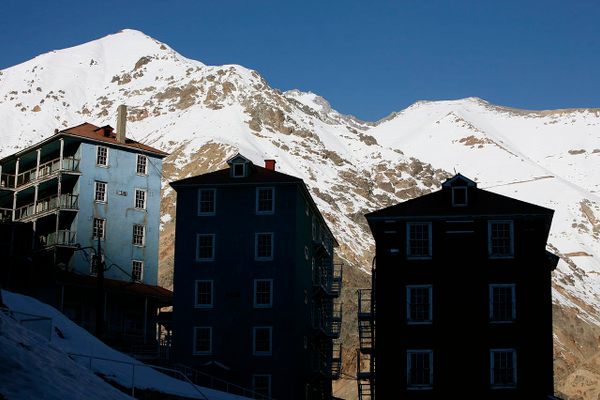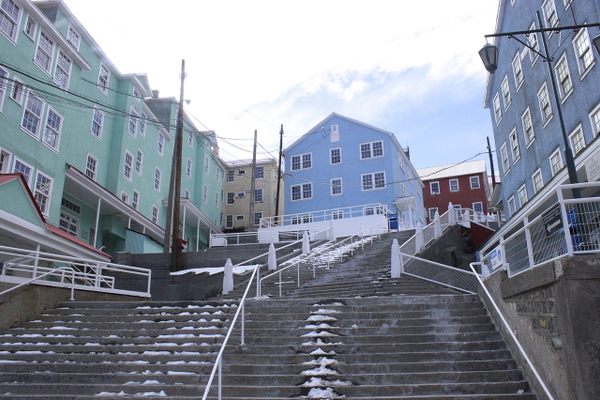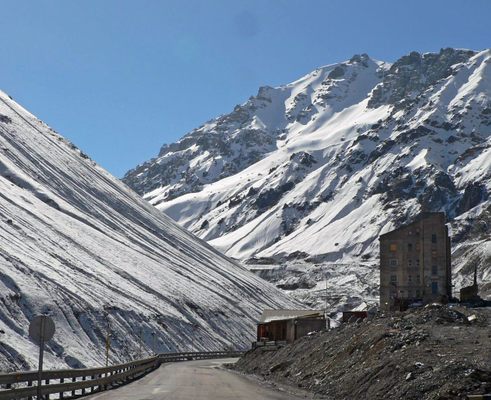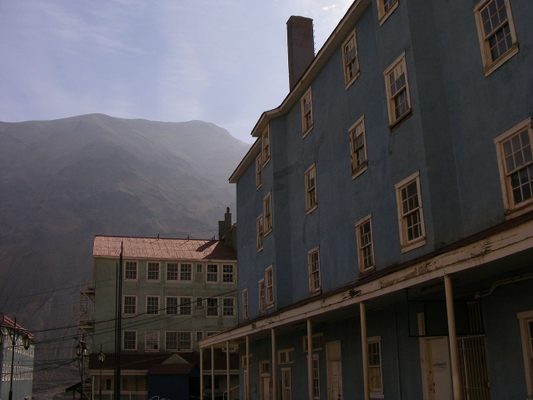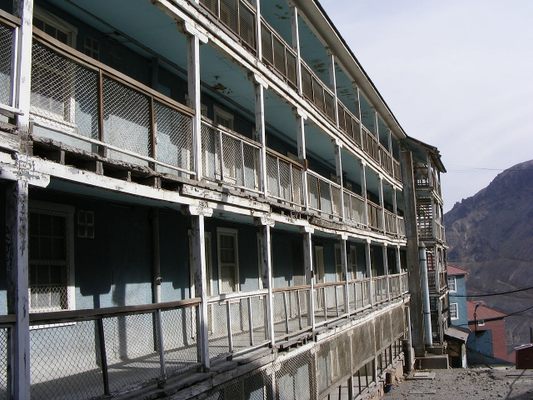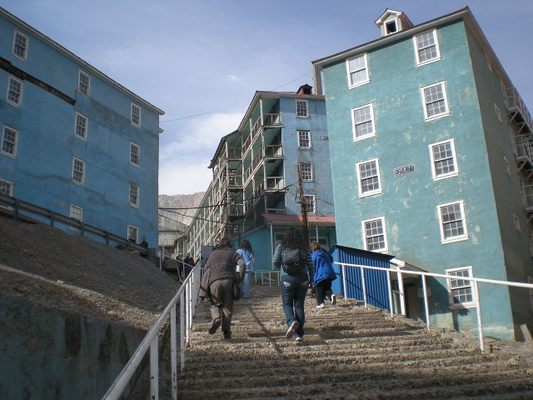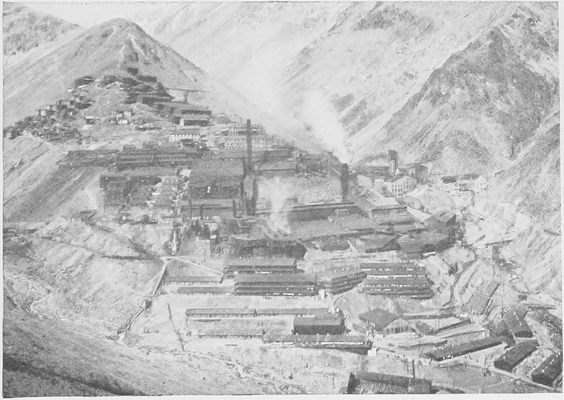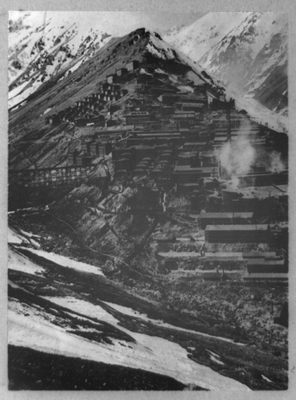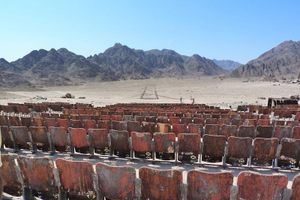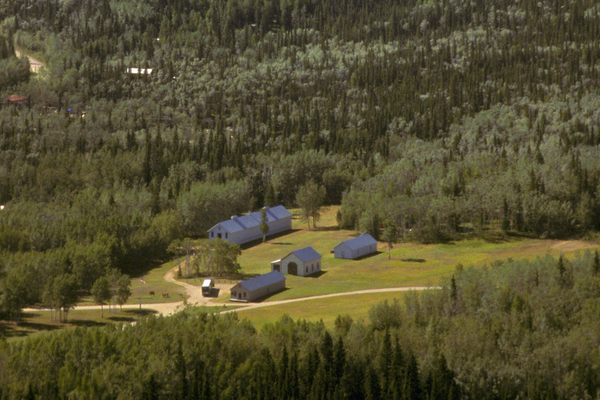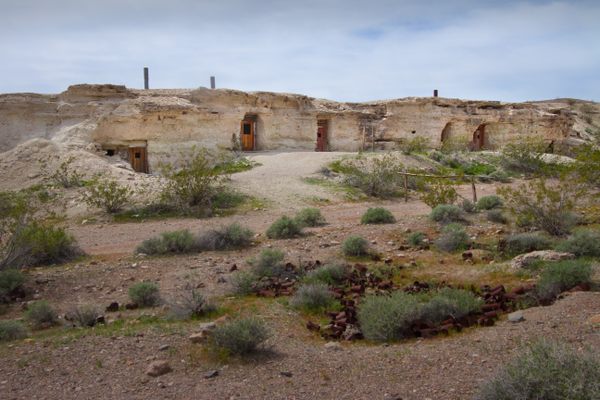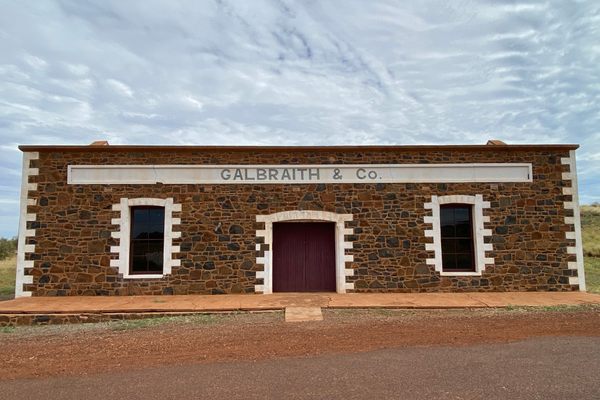About
Sewell Mining Town sits on a barren slope above the world’s largest underground copper mine. Founded in 1905 and abandoned in the 1970s, the so-called City of Stairs is a fascinating example of the company towns that set up shop in some of the world’s most remote locations.
Situated at more than 7,220 feet (2,200 meters) above sea level in the Andes, on an exposed slope too steep for wheeled vehicles, Sewell wasn’t exactly prime real estate. But when the Braden Copper Company found plentiful reserves in them thar hills, it set about building a town to house all its workers. These workers were needed to extract copper from El Teniente (“The Lieutenant”), an underground copper mine that would become the largest in the world.
Due to the steepness of Sewell’s location, the town planners had to get creative. The entire urban design was based around a large central staircase, the Escalera Central, which climbed up the hillside from the railway station down below. From this radiated a series of other pedestrian-only stairways and paths, giving the town its nickname, the Ciudad de las Escaleras, "City of Stairs."
To keep things a little more cheery, the buildings were painted a variety of colorful shades. And to save the miners and their families from a chilly descent into the depths of boredom, the company built playgrounds and plazas, shops and a social club, and even a movie theater. Alcohol was banned throughout the town, but the miners normally found a way to bring in a donkey-load of liquor.
For 60 years, Sewell thrived and expanded. At its height in 1968, it was home to more than 15,000 people. But its history wasn’t short of a few tragedies. Two of the most fateful incidents occurred in consecutive years. On the night of August 8, 1944, an avalanche tumbled down from the slopes above Sewell, killing 102 people. A year later, a fire broke out at the El Teniente mine, trapping the workers inside. The incident, known as El Humo (“The Smoke”), killed 355 men, many dying from carbon monoxide poisoning. It remains the worst metallic mining accident in Chile's history.
Neither accidents nor natural disasters were the ultimate cause of Sewell’s abandonment. Instead, it was nationalization by the Allende government that brought about the town’s demise. In 1977, after six years of state ownership, the National Copper Corporation of Chile began to move families out of Sewell. And then they began to destroy the town.
Thankfully, the Chilean government realized that Sewell was worth saving for posterity’s sake. It halted the demolition in the 1980s and declared Sewell a National Monument in 1998. In 2006, UNESCO designated Sewell a World Heritage Site, further protecting what is now one of the best preserved examples of a company mining town. Fifty or so colorful buildings have been faithfully restored, and an on-site museum helps explain the history of the abandoned City of Stairs.
Related Tags
Know Before You Go
Visiting Sewell is by tour only. Tours can be arranged in Santiago, 45 miles to the north of Sewell, or in Rancagua, 20 miles to the west.
Published
January 25, 2018
